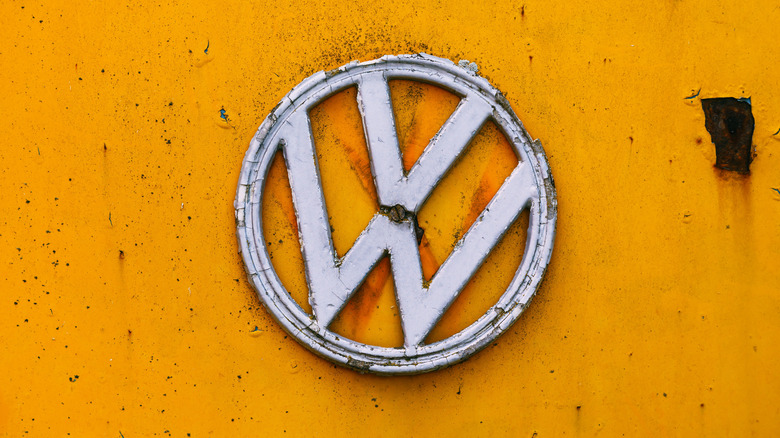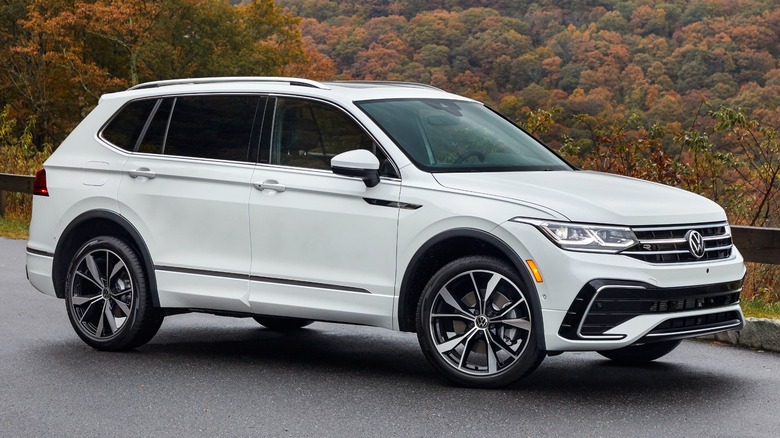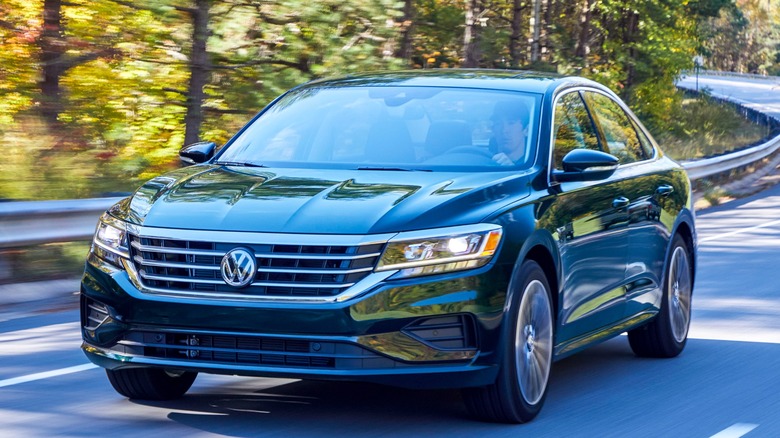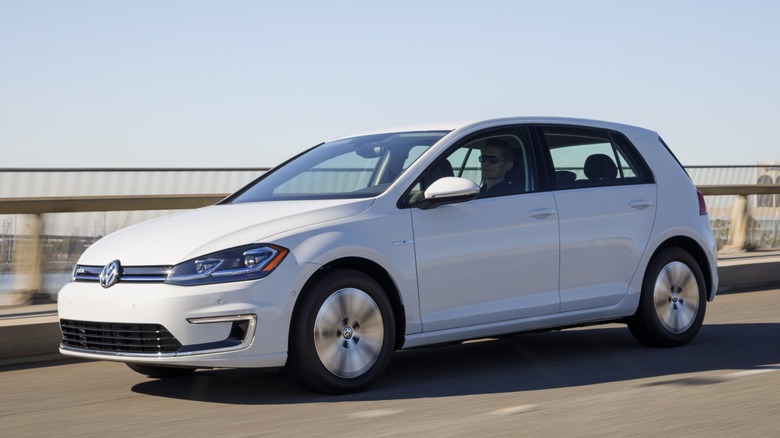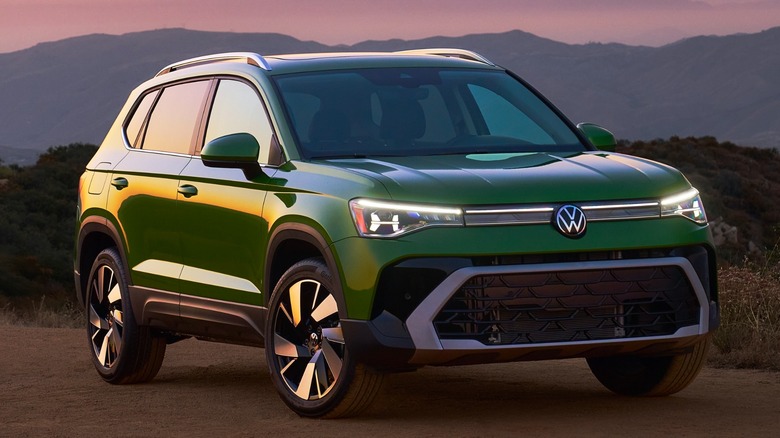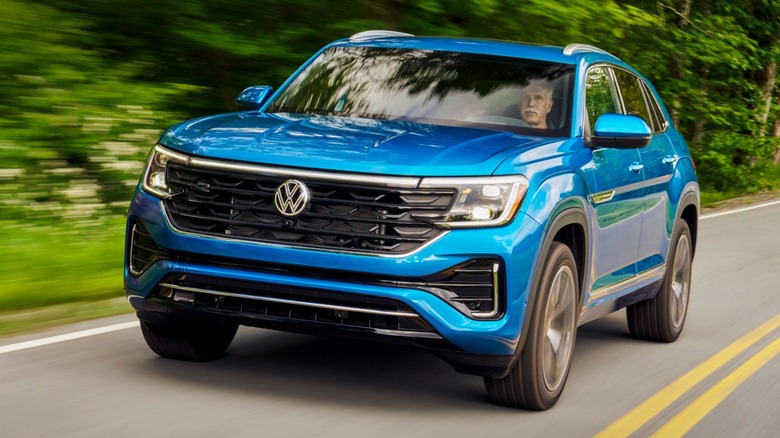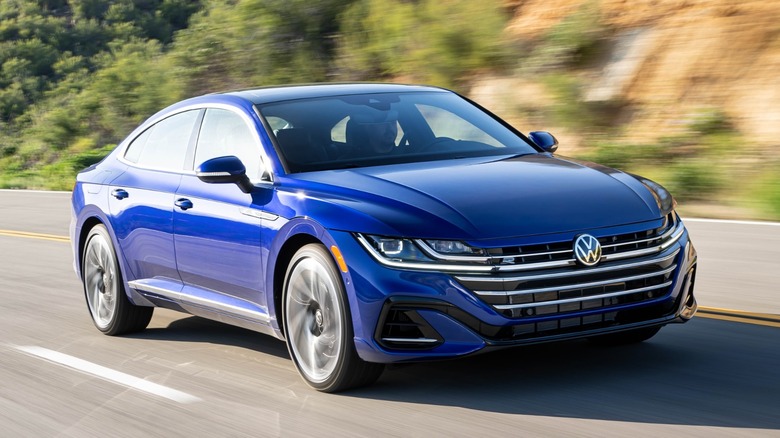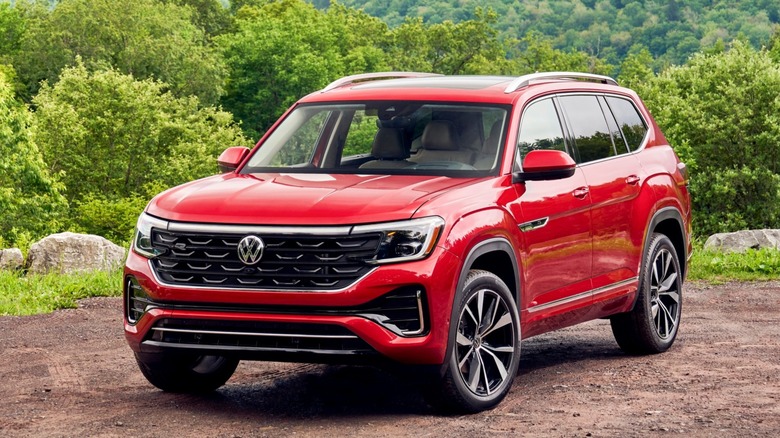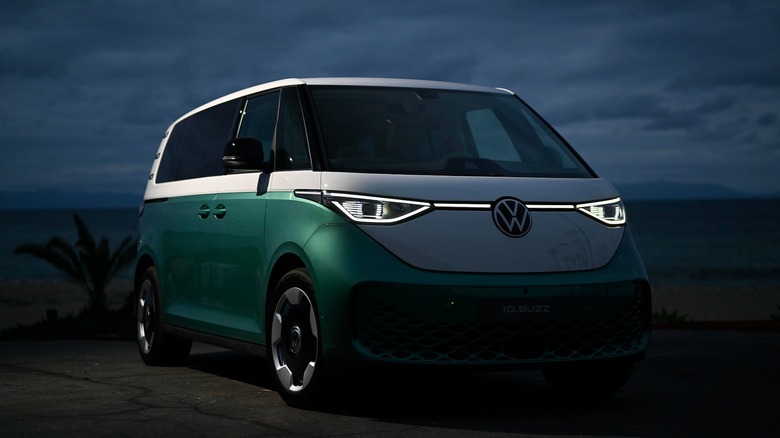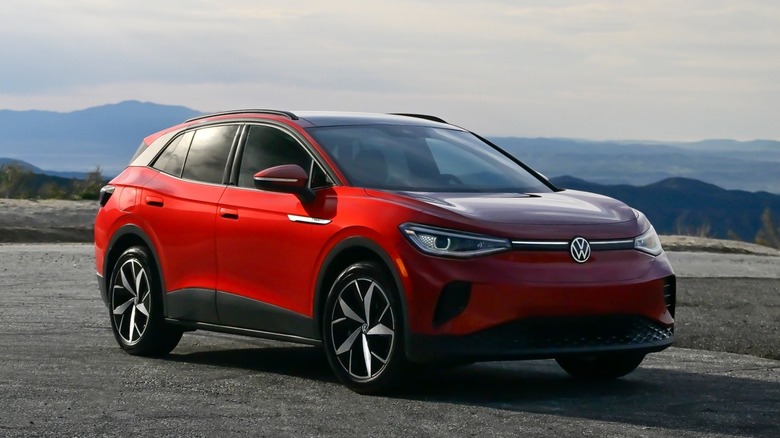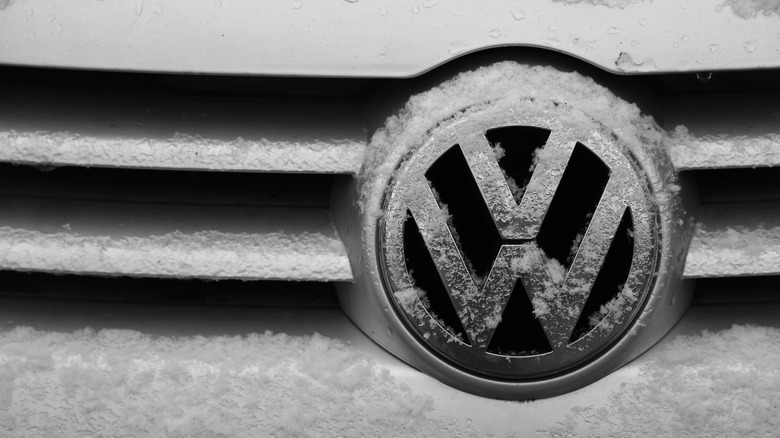9 VW Models With Terrible Resale Value
When it comes to keeping the value of its long-used cars, Volkswagen unfortunately can't measure up to other manufacturers. On average, its models only manage to keep around half of their original value after 5 years, which is far less than what you'll find from something like Toyota or Honda. They're still able to hold their value better than some of their rivals, including BMW models with the worst resale value. But some VWs are noticeably worse at holding their price than other cars.
While some VW models might not have entirely terrible resale value on average, they also lack decent consistency in that area. Depending on what you're looking at — and the condition you find it in — a perfectly fine vehicle can end up dipping below half of its original MSRP. A few models are particularly questionable due to these variations or because they just aren't good at keeping their costs up, regardless. If all you care about is selling your car after a few years, you'll have a lot more difficulty with these VW models than with others.
Tiguan
The Volkswagen Tiguan is actually one of the more valuable vehicles on this list, consistently managing to keep over half of its original price. The reason why it's here in the first place comes down to variance, as its value ranges from close to 59% to just around 52%. That's a difference of nearly $4,000, and while that isn't as crippling as certain other vehicles with poor resale values, it's still a heavy blow to its used price. Assuming it has all the bells and whistles, a new Tiguan can cost around $40,000, and that extra $4,000 loss could leave you unable to check out the cheapest new cars you can buy in 2025.
While it's not the best deal if you want to trade up to a newer car, the Tiguan's resale value isn't all bad. A new 2020 Tiguan was around $26,000 at its cheapest, and if its depreciation is anything like its more expensive trims, that percentage loss won't hit nearly as hard. Besides, if you decide not to assume the worst, selling a 5-year-old model for around 60% of its original cost is far from a terrible deal. Just be wary of older model years, as vehicles like the 2018 Tiguan were included in our list of used Volkswagen models you should steer clear of at all costs.
Passat
Although its resale value is respectable on paper, the Volkswagen Passat isn't in the best spot currently. Its estimated depreciation leaves it at around 57% of its original cost, which is arguably better than the Tiguan's average numbers. But back in 2022, the Passat was discontinued in the United States entirely, which will only hurt its place in the hands of secondhand sellers as the years pass. That value might be a decent estimate for a 5-year period, but the only available models you'll find in 3 years will be older than that, likely losing over half of their MSRP.
While its story in the U.S. isn't so uplifting, the Passat has continued to thrive overseas with its newest models despite its MSRP being placed at around $53,000 in USD — nearly double that of the 2023 variant. Additionally, older Passats in America tend to keep their value pretty well for at least 6 years, and it's measured to stay above $10,000 even after 10 years. It probably isn't the first choice you should make for future reselling, but if that's what you end up doing, at least it's not something you'll be forced to lowball just to attract some decent buyers.
e-Golf
The Volkswagen e-Golf is in a situation similar to the Passat, but it's actually even worse off. Its 5-year resale value only goes as high as around 53%, already putting it at a disadvantage, and this EV's own discontinuation happened back in 2020. It's only going to get older, and its price is only going to get lower as a result. Combine that with the fact that replacing the battery pack on a VW e-Golf probably costs more than you think, and you have a prime example of a car that just won't find much luck in the used market.
It's to be expected that most electric vehicles will lose value faster than others. In fact, the e-Golf actually ranks quite high compared to other EVs in this regard, with most unable to stay above half of MSRP. But many of those EVs are still being made today, which means buyers will have a wider array of options to choose from. Even if you wouldn't call the e-Golf's value terrible today, it's not going to get much better than it is already.
Taos
Depending on who you ask, the Volkswagen Taos is the first vehicle on this list to dip below half of its value. Its variations in estimates are even bigger than the Tiguan's, ranging from a perfectly acceptable 58% to as low as 48%. Some Taos models are expected to stay close to the base price after one year, while others are slated to lose over 30% of the over-$33,000 cost. It doesn't seem like there's much agreement on how well a Taos can hold its value, and that's unlikely to bode well if you're looking to sell one off.
The Taos is a relatively new vehicle from VW, being revealed in 2022 and still in production today. While the estimated depreciation assumes higher trim levels, its base price is also very welcoming at just around $25,000. This is likely why its resale value is so difficult to pinpoint, as it hasn't even been 5 years since the oldest available model. Our 2025 VW Taos Review noted that it was a fine vehicle if a little lacking, so it might just take some extra time and refinements before a true judgment call can be made about where its resale value truly stands.
Atlas Cross Sport
The variations in value continue with the Atlas Cross Sport, but its highest and lowest estimates only go to around 54% and 47%. While this makes it easier to pinpoint what a used model will most likely sell for, its high base price of over $37,000 certainly doesn't make the end result very appealing, regardless. Additionally, even though it's still a newer model, its 2020 introduction means there are more visible examples of what the Cross Sport would go for after 5 years. Simply put, this is one SUV that isn't going to appeal to most resellers.
Our 2024 Volkswagen Atlas Cross Sport review was critical of the SUV, even with its competitive price among other vehicles of its size. Its unimpressive specs left a lot to be desired, and while higher trim levels do attempt to remedy this problem, they also defeat the purpose of its relatively low cost. If you're already aiming for a more budget-friendly SUV, a used Cross Sport probably isn't one that's high on your list. It's honestly more surprising that it doesn't fall under 50% outright, though a lack of extra-exciting features doesn't equate to a bad vehicle by any means.
Arteon
You might find a used Volkswagen Arteon at a fairly respectable price, sometimes keeping close to 57% of its original cost. On the other hand, you might also find that the number has gone down to just 46% of what it was. Its lowest price when new is over $44,000, so its 5-year depreciation is likely enough to buy a whole other brand new car. To top it all off, production of this vehicle ended with the 2024 model year, so it will likely suffer the same overall loss in value as other discontinued models.
The Arteon's discontinuation is a bit more recent than other VWs, and the newer models haven't lost all that much value in the few years they've been around. If you're planning on selling an Arteon of your own and it happens to be one made in its final years, you might get a pretty good price for it if you're quick. Although it's facing a quick demise, it's still one of the best-looking Volkswagens of all time. Just try to keep time from ravaging its good looks, and you shouldn't end up with a massive loss once it's finally sold.
Atlas
Interestingly, the base Volkswagen Atlas ends up with worse resale value overall than its Cross Sport alternative. The best it can get is only around 52% after 5 years, while its lowest estimate is around 44%. These values only get worse when you look at its starting MSRP of over $38,000, which is higher than all but three other VW models available today. Again, this is relatively affordable when it comes to SUVs, but resellers will still have to deal with potentially losing $20,000 on selling a used vehicle.
This base model is at least more practical than the Cross Sport thanks to its larger number of rows, but it's still forced to compete heavily with other SUVs in both new and secondhand markets. Compared to those in its class, it's far below average, even when being generous to its potential value. When ignoring EVs, the Atlas stands as potentially the worst Volkswagen for resale value.
ID. Buzz
The Volkswagen ID. Buzz arguably isn't as bad as the Atlas, Arteon, or Cross Sport when looking at its depreciation. It goes to around 52%, but it also doesn't get much higher than that, lacking the variation in its estimates that puts those other vehicles in a more positive light. Still, this is an early estimate, as this electric bus is a brand-new model that only began with the 2025 model year. Our 2025 Volkswagen ID. Buzz review was also very positive, noting how its charm and features made it an attractive EV to drive for quite some time.
Even with all this in mind, the ID. Buzz is still more likely to end up with pretty terrible resale value in practice. On top of being electric, it's also around $60,000 brand-new, which guarantees a massive hit to your finances if you sell it after that usual 5-year period. It's also a self-proclaimed bus in the form of a minivan, and its current sales aren't keeping up all too well with its current rivals. The demand of the ID. Buzz might skyrocket eventually, allowing it to keep its value beyond its estimations, but there's no guarantee it won't go the way of most other EVs being sold off by their owners.
ID.4
Like the ID. Buzz, the ID.4 is a relatively new EV from Volkswagen, though it dates to 2021. That puts some more perspective into its absolutely abysmal resale value, ranging from around 46% to a near-flat 40%. With its base price starting above $45,000, it's possible that you'll end up losing a similar amount of money to the Buzz just 5 years after your original purchase. Some owners have reported this value crashing down firsthand, unable to sell their ID.4 for over 50% of its MSRP after just one year.
Considering how the ID.4 practically replaced the e-Golf, you might think its values would come in a bit closer to each other. But its general upgrades are undercut by the price increase, which isn't great for a segment of the market that's already notorious for poor value. In fact, the ID.4 misses the top 10 best-value electric SUVs list by one place, which puts the idea of its terrible depreciation into perspective. Even the worst-valued VW can still find some success when you see how harshly it can beat out other EV rivals.
Methodology
The resale values listed here were taken from iSeeCars and CarEdge, all based on 5-year estimates for each model. These estimates also apply to vehicles that were discontinued more than 5 years ago, as well as brand-new vehicles like the ID. Buzz. Due to this, you might have some trouble finding the models listed here at the exact same percentages.
As always, resale value will depend not only on the model itself, but also on the wear and tear it underwent during its previous ownership. A well-maintained ID.4 is likely to end up with less depreciation than a poorly managed Tiguan, or it could go down to just 10% of its value if it wasn't given proper maintenance. Still, it's not a bad idea to consider each VW on its own, especially when looking at history and competition. Without proper foresight, you could sell one of these cars for way less than its actual worth — or end up buying a used one that costs as much as it would while new.
